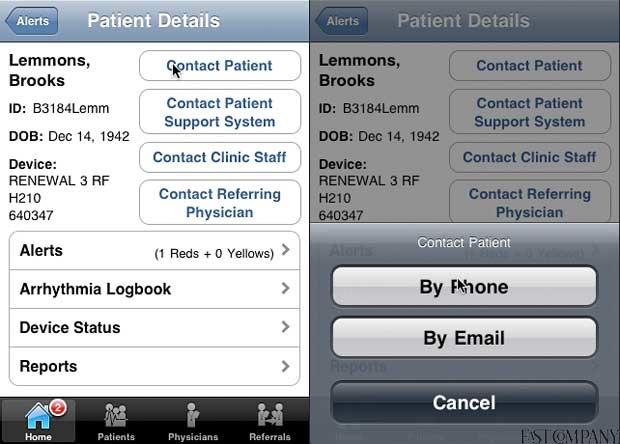 "It is amazing how much this technology begins to change culture. When communications and information flow are limited, too often a culture of distrust develops. But with improved communications and information sharing, feelings of greater teamwork and collaboration soon follow," Dr. Robert Murphy, Chief Medical Informatics Officer at The Memorial Hermann Healthcare System in Texas told the BBC during a recent interview. Murphy contends that since his 13 hospitals' physicians began using iPhones and medical apps to improve collaboration, the trust among his physicians has increased.
"It is amazing how much this technology begins to change culture. When communications and information flow are limited, too often a culture of distrust develops. But with improved communications and information sharing, feelings of greater teamwork and collaboration soon follow," Dr. Robert Murphy, Chief Medical Informatics Officer at The Memorial Hermann Healthcare System in Texas told the BBC during a recent interview. Murphy contends that since his 13 hospitals' physicians began using iPhones and medical apps to improve collaboration, the trust among his physicians has increased.
Of course, uptake of smartphones among physicians -- Manhattan Research estimates 64 percent of all physicians in the U.S. use a smartphone today and more than 80 percent will by 2012 -- has its benefits, but patient groups believe the devices pose an increased threat to patient privacy, too:
"The problems are common to all mobile devices: encryption at rest on the device and in transit, and whether data on lost or stolen devices can be easily accessed," says Deborah Peel, founder Patient Privacy Rights.
Peel's concerns should not be taken lightly, security and privacy cannot be an afterthought for any wireless health solution that includes personal health information. BlackBerry-maker Research In Motion's Fraser Edward shared similar concernts to Peel's during an interview with MobiHealthNews earlier this year. Edwards said that BlackBerry Enterprise Server tools enables the IT group in a care facility to enforce the passwords on a device, to ensure that the device’s external memory card is encrypted and to remotely wipe a device should it be lost.
Read the entire BBC article here (which includes quotes from AirStrip, mVisum, NHS and MobiHealthNews).













